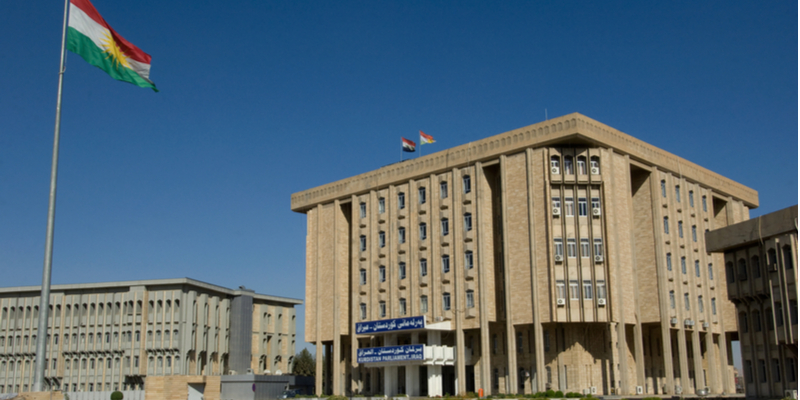Political stalemate and the spreading coronavirus have made it difficult for Iraq’s leaders to agree on a new government.
According to reports, Prime Minister Designate Mustafa Al-Kadhimi is having trouble forming a coalition government. This delicate process involves apportioning cabinet positions to multiple minority parties. Al-Kadhimi, a lawyer, former government minister, and outspoken political pundit, is the third PM-designate in the last three months. Shia parties recently rejected several proposed government ministers. Hadi Al-Ameri, the head of Al-Fatah Coalition, is the key opposition leader, according to sources. These opposition groups want President Barham Salih to return recently-ousted PM Adil Abdul-Mahdi to power. Abdul-Mahdi is a Shia with anti-American, anti-Kurd, and anti-Hussein leanings.
This political turmoil comes at a time when the novel coronavirus threatens to strain the country’s fragile hospital system.
Rebuilding Iraq
Most people would not compare quintessential conservative George W. Bush with quintessential liberal Woodrow Wilson. But in this context, their views were similar.
Wilson was president during World War I. He believed that if Kaiser Wilhelm was dethroned, postwar Germany would become a representative democracy because people yearn to be free. Things did not work out that way. Kaiser Wilhelm went into exile and the victorious Allies set up a German republic. But less than 20 years later, Adolph Hitler became Germanys’ new chancellor. He quickly set up one of the most brutal and nightmarish regimes the world has ever seen.
Bush believed basically the same thing. He apparently thought that once strongman Saddam Hussein was gone, the Iraqi’s natural desire for freedom would take over, and a representative democracy would take root.
Mustafa Al-Kadhimi is certainly no Hitler, and he is no Hussein either. The jury is still out on whether there will be democracy in Iraq.
What does all this have to do with physical rebuilding? A lot. No one has confidence in a government that cannot meet basic needs. So, until there are roads, schools, hospitals, and utility plants, no one will have confidence in a democratically elected government. The next strongman might be just around the corner.
Contractors and Nation Rebuilding
Bitter experience has taught the United States that rebuilding nations like Iraq is at least as important as winning the war. That rebuilding must be both political and structural. Contractors cannot do much about the first part, but they play a significant role in the second part.
The aforementioned projects are huge. Stateside planners often come up with blueprints or general ideas. No one knows exactly what to expect until workers appear on the site. That is where contractors take over. Experienced construction managers breathe life into the project. They plan construction details and hire crews. Usually, the workers are locals instead of contractors. That way, the local population has a stake in the outcome. So, there is a better chance the project will be completed on time and under budget.
Furthermore, Iraq is still a war zone. Recent tensions with Iran and the spreading coronavirus have made the situation even more unstable. It is challenging enough to build a hospital in Boston. It is infinitely more difficult to build one in Baghdad. Only veteran overseas contractors have the relevant experience.
These projects usually require a mixture of unarmed and armed contractors. The unarmed contractors keep the project moving forward. The armed contractors provide security. In Boston, a fence and a few cameras probably provide an effective deterrent. In Baghdad, much more is required.
Types of Construction Contractor Injuries
Construction workers are consistently one of the most often-injured occupational groups. These dangers are especially high in foreign countries. The nearest quality medical assistance might be on the other side of an international border. Furthermore, if there are any workplace safety laws on the books, inspectors rarely enforce them.
According to the Occupational Safety and Health Administration, the number of construction worker deaths could be slashed if attention focused on the Fatal Four, which are:
- Falls: Most of these injuries are falls from a height. Rickety scaffolds can usually support a few workers at a time, but they quickly buckle under pressure. Safety precautions are usually a problem as well. Most Iraqis do not speak English. Although the safety instructions are in Arabic, not everyone in Iraq speaks Arabic. Additionally, key details sometimes get lost in translation.
- Struck By Object: There is an old story that a penny dropped from the top of the Empire State Building picks up so much speed that it is fatal to a pedestrian on the sidewalk. Like many urban legends, this story is mostly false, but it has a grain of truth. According to Newton’s Second Law of Motion, speed multiplies the force in a collision between two objects. So, if someone on the upper levels drops a hammer, it is ‘look out below!’
- Electrocutions: At busy construction sites, it is often difficult to tell the difference between a live wire and a dead one. The aforementioned language barrier magnifies this difficulty.
- Caught Between: Lifts and elevators make the work pass more quickly, but they are also unforgiving and dangerous. There is another urban legend about a man in Houston who tried to stop elevator doors with his head, and the incident ended very badly. We are not sure if that story is true or not.
Occupational diseases are a problem on construction sites as well. Hearing loss is probably the most common issue. Over half of all construction workers in the United States have been exposed to hazardous noise levels. Most of these people did not have or use earplugs.
Repetitive stress disorders, liek joint or back pain, are also problematic. Many construction workers spend lots of time stretching, bending, kneeling, and stooping. Over time, these activities wear significantly on joints, especially if the victim has a pre-existing condition.
For more information about DBA benefits, contact Barnett, Lerner, Karsen, Frankel & Castro, P.A.

